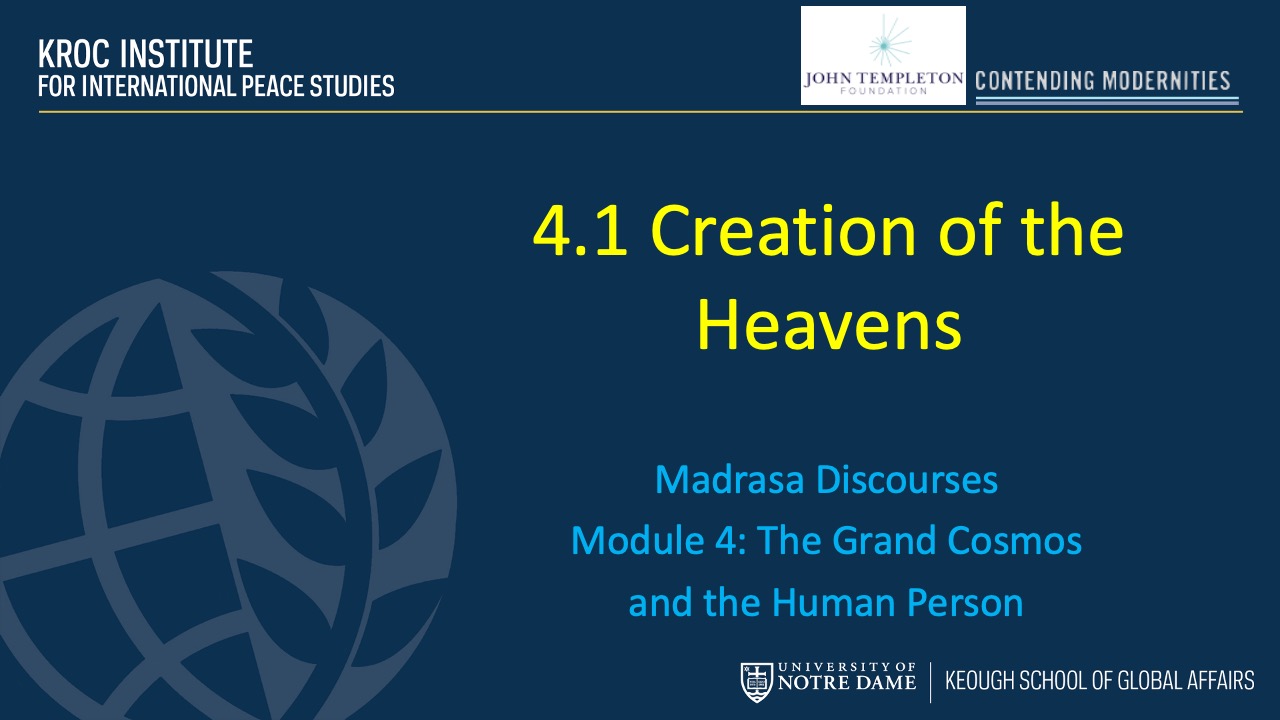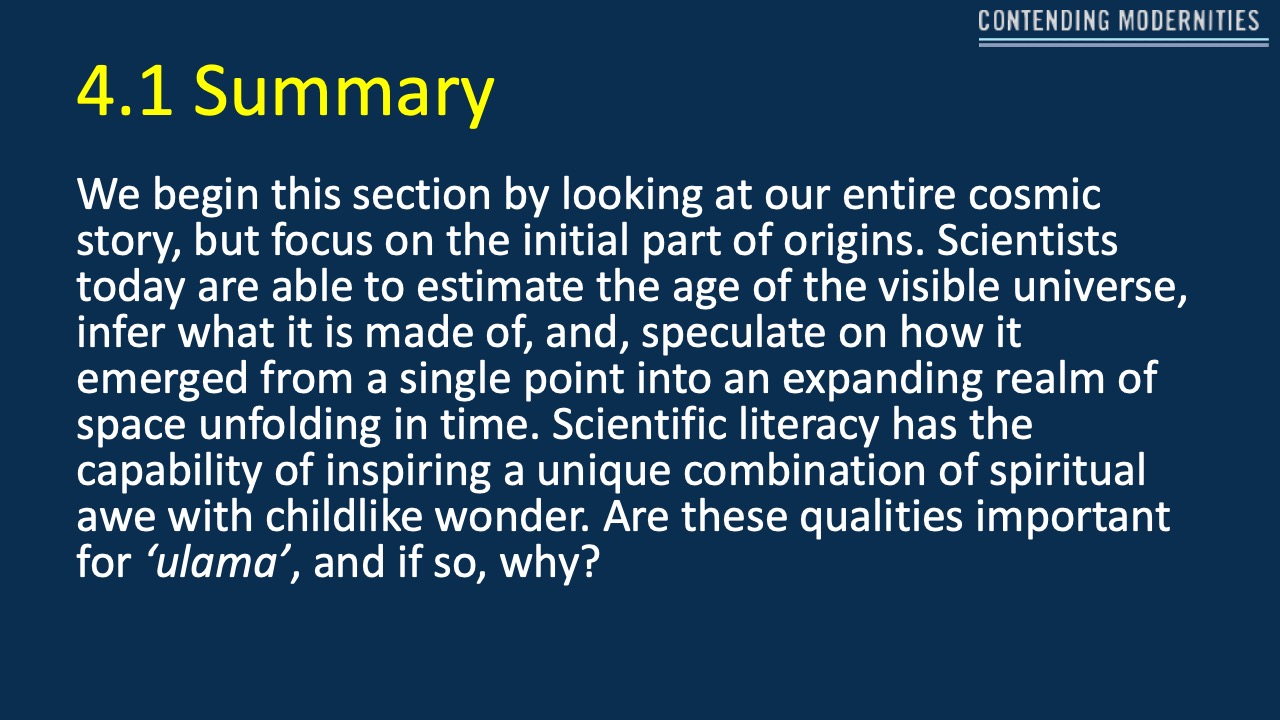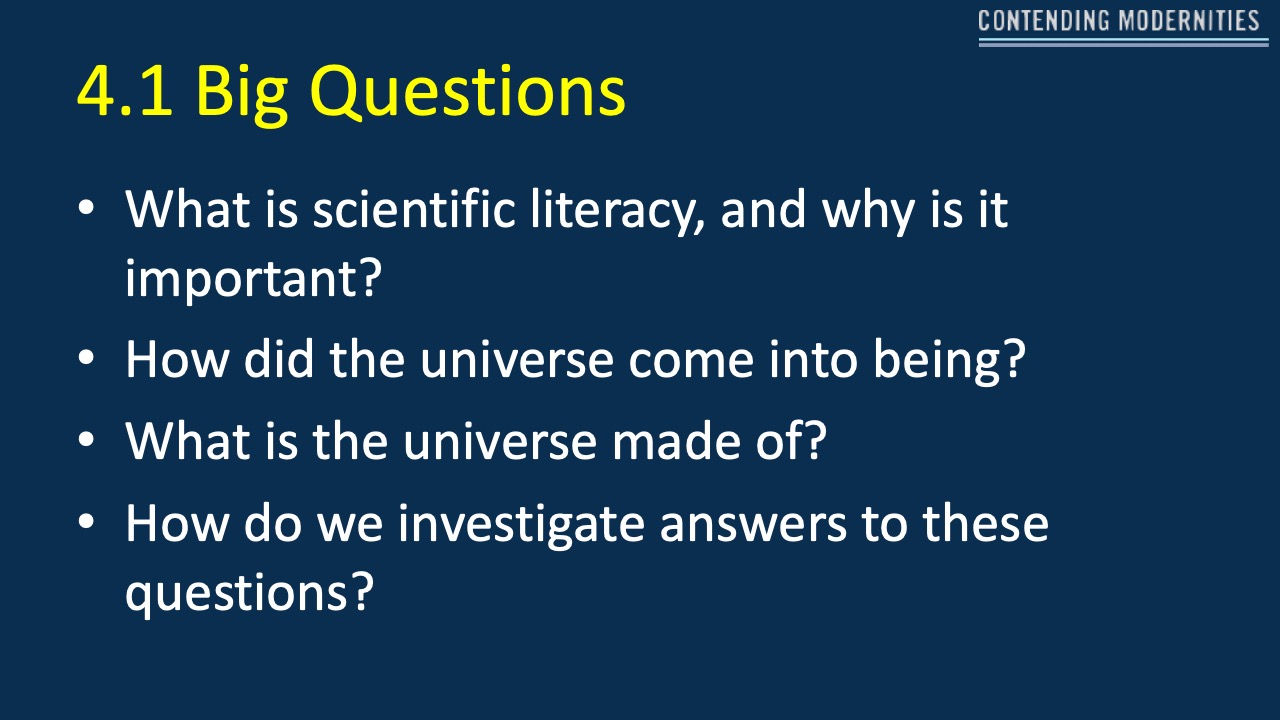The scientific consensus on the Big Bang as the origination of the observable universe is backed by physically measurable evidence, including the cosmic microwave background (CMB), which permeates the universe as electromagnetic radiation from an early stage of the universe. In the Islamic tradition, creation is described as a moment of creation ex nihilo, or out of nothing. Popular conceptions of the Big Bang imagine a moment before time where all matter and energy is concentrated at a single point and then expands.
The Islamic conception gives the agent of creation as God, but the scientific view does not offer any agency to the beginning of the universe, largely because scientific evidence does not exist to say anything one way or the other—it is agnostic. Religious charges against scientific explanations of creation take this point as problematic, pointing out that someone had to have started the process. The main tenets of these counterarguments are largely shared in Western discourses about creation and, in particular, in evangelical Christian creationist rhetoric. In fact, a pattern has emerged where, when scientific discourse is produced in the West, the counter-reaction to new discoveries often first emerges in Christian circles, and their counter-arguments are often recycled uncritically by Muslims in other parts of the world. Creationism thus has its advocates in the Islamic world as well. Meanwhile there are, of course, many Muslim scientists and scholars who understand the contemporary consensus on the origins of the universe.
In this section we will learn about current theories about the origins of the universe, as well as consider the effect the changes in scientific discourse about the heavens has had on interpretation of scripture.
Key terms:
- Big History
- Big Bang
- “Dark” matter
- Standard model
- Cosmogony
- Exegesis
Thumbnail: The ‘Pacman Nebula.’ Photo Credit: NASA’s Marshall Space Flight Center, 09/28/11. CC BY-NC 2.0.
Learning Materials:
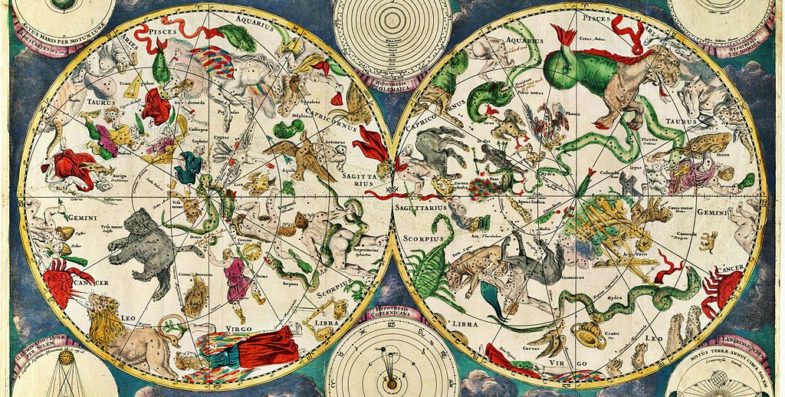
4.1.1 The History of Our World in 18 Minutes
Big history traces the origins of our universe to the present day. (Frederik de Wit/"Celestial map")
Read More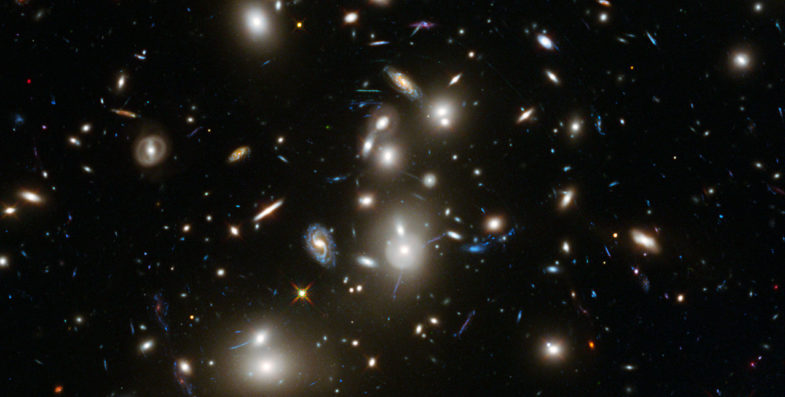
4.1.2 The Origins of the Universe
The Big Bang model is the most widely held theory of the evolution of the universe. (NASA/"Abell 2744 Cluster")
Read More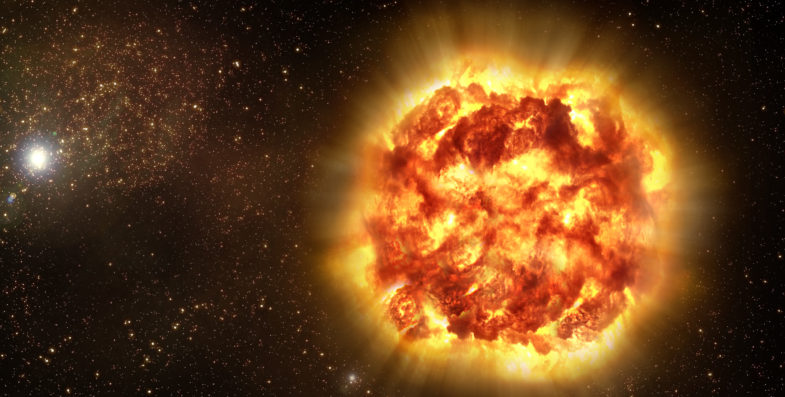
4.1.3 What is the Universe Made of?
Knowing what the universe is made of helps us understand how it evolved. (ESO/"Asymmetric Ashes")
Read More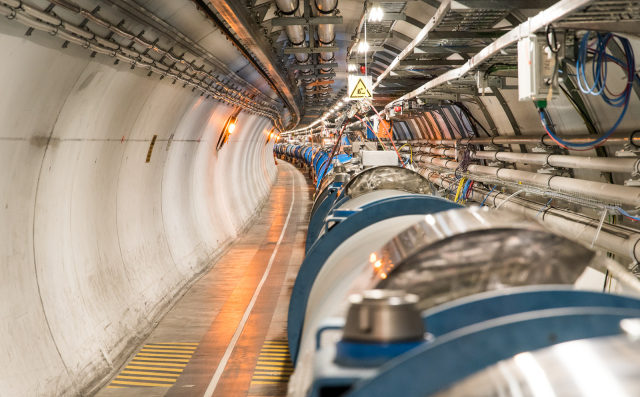
4.1.4 The Standard Model
Is our knowledge of our contemporary physics model complete? (CERN/"LHC")
Read More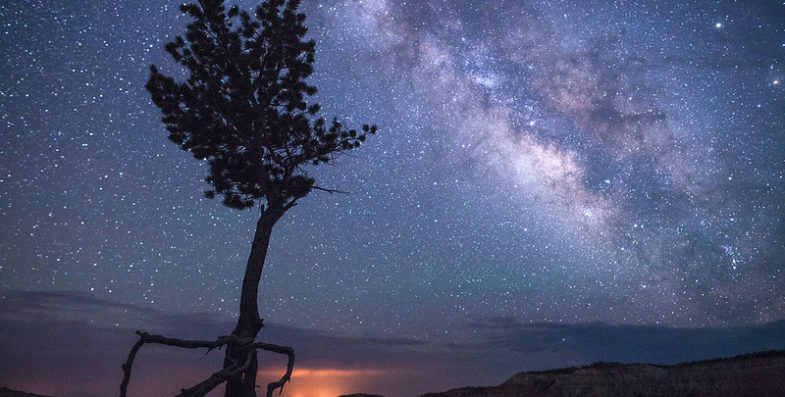
4.1.5 Quranic Cosmogony
Have the shifts in human understanding on the origins of the universe influenced interpretations of scripture? (Beau Rogers/"Starry Night")
Read More

